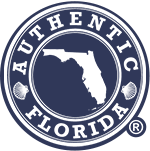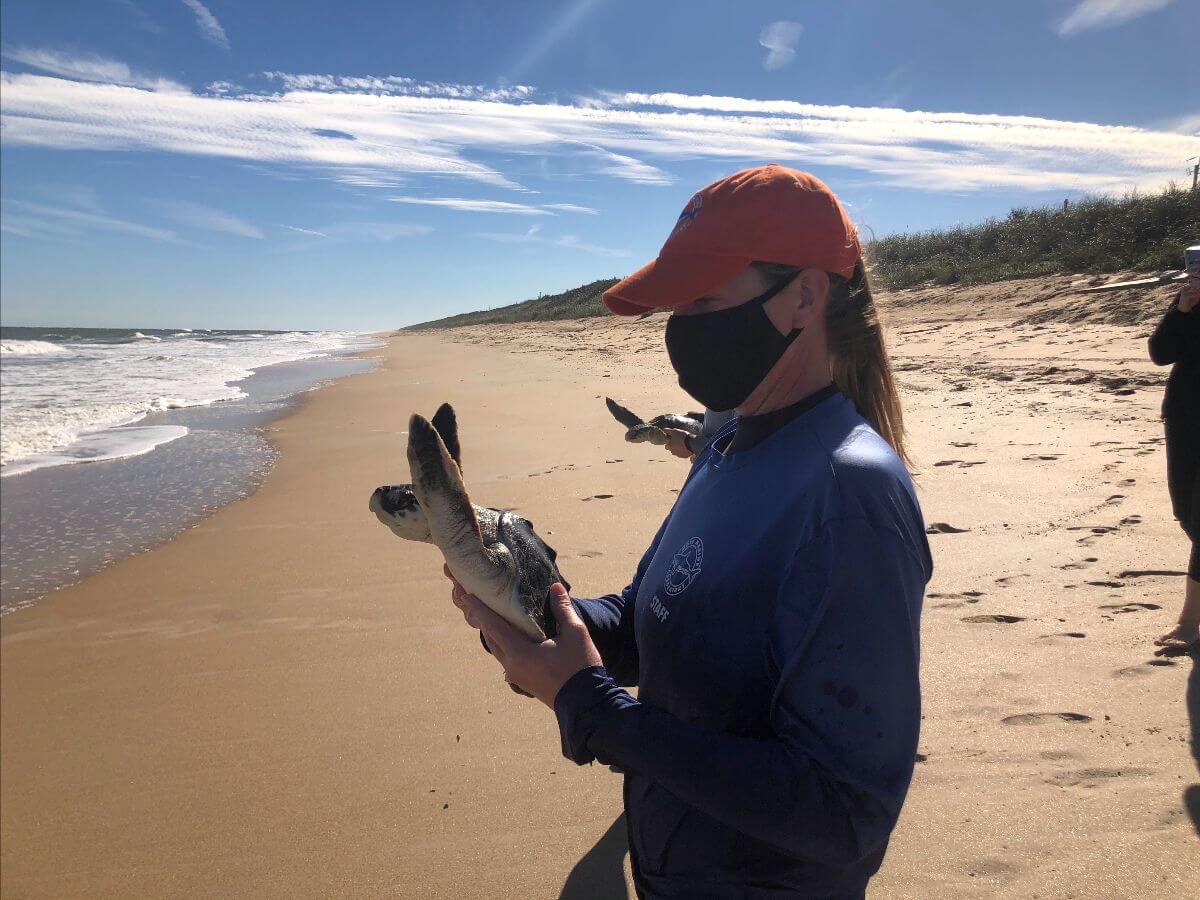Last Updated on October 30, 2022
Nine endangered Kemp’s ridley sea turtles returned to the Atlantic Ocean aftercare at Mote’s Sea Turtle Rehabilitation Hospital.
Mote Marine Laboratory & Aquarium said a fond farewell to nine juvenile Kemp’s ridley sea turtles today as they were released in New Smyrna at Canaveral National Seashore.
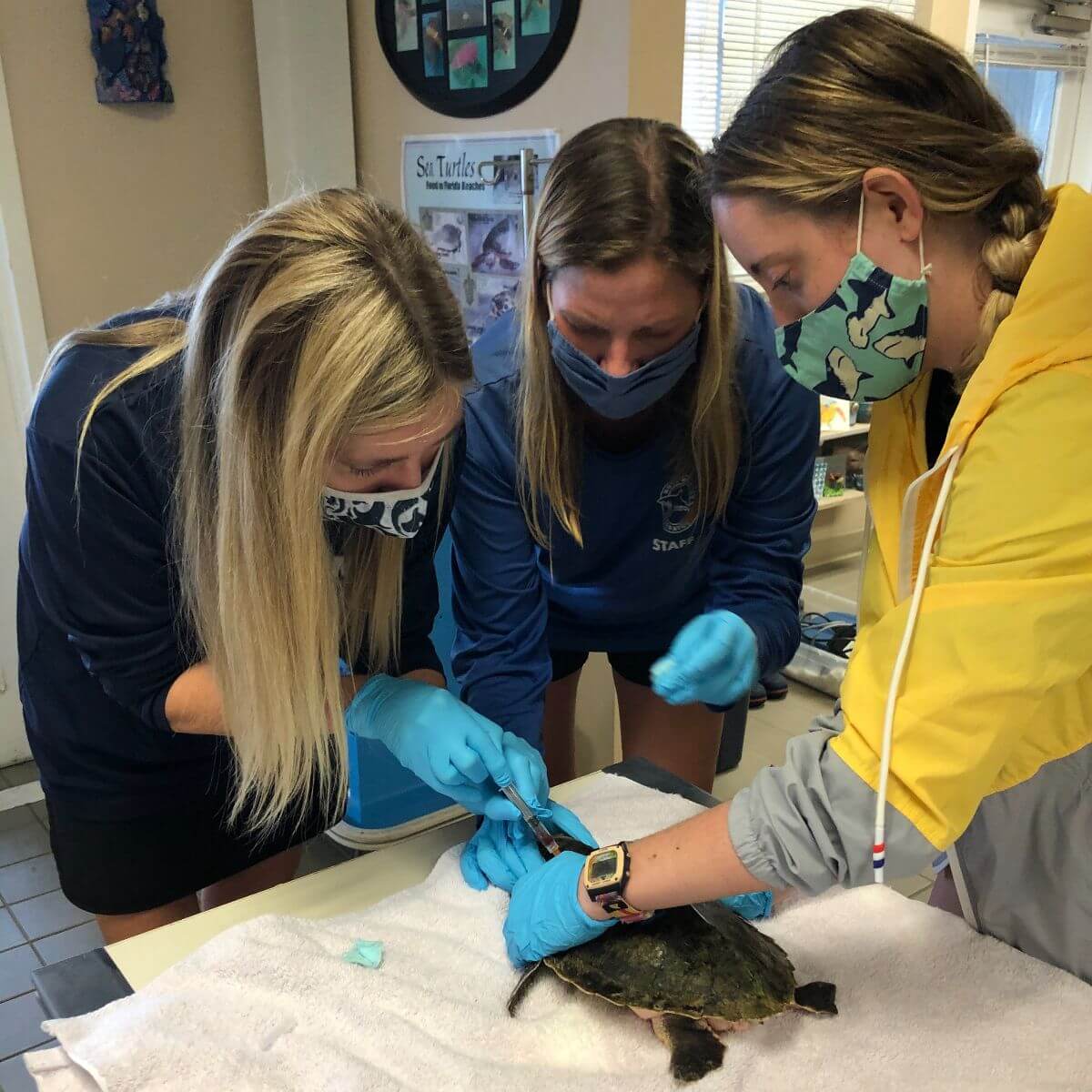
The nine turtles came to Mote’s care after stranding in the Cape Cod region in November during a cold stun event. As ectothermic (commonly called “cold-blooded”) animals, sea turtles cannot regulate their body temperatures on their own, and when they find themselves in too-cold water, they become lethargic.
This can be potentially fatal as their body functions slow down, leaving them susceptible to predators and boat strikes, allowing algae to grow on their backs and more.
Since Nov. 21, Mote has received three separate groups of cold stun turtles, totaling over 20 turtles. This year’s cold stun event in New England has caused over 900+ strandings, as networks of volunteers, state and federal agencies, and also nonprofits work around the clock to fly the turtles to various rehab facilities across the U.S., including Mote in Sarasota.
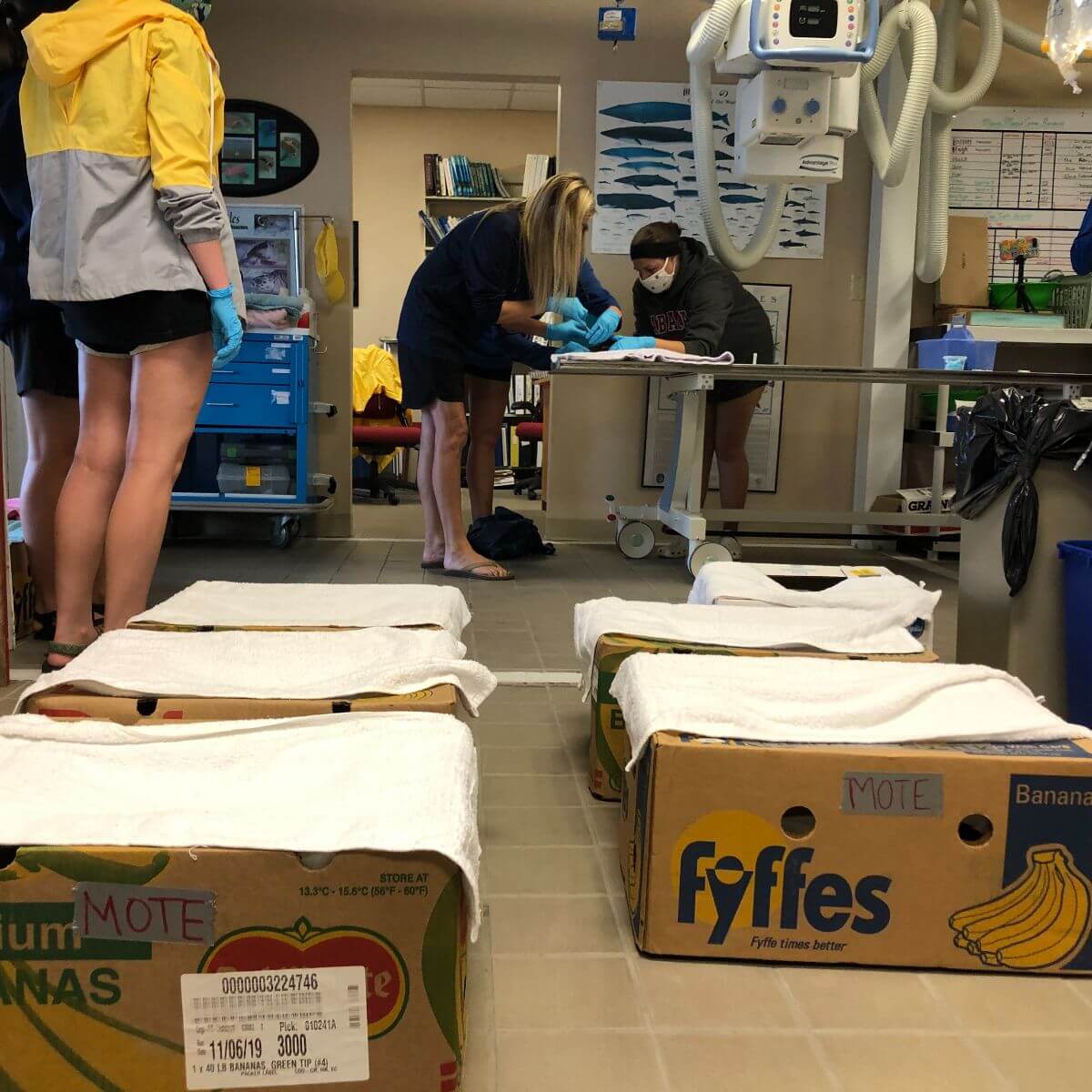
Clearing the Sea Turtles for Release
After clearing them for release, the nine turtles received a last physical check and were implanted with a PIT tag (passive integrated transponder). These small microchips function much as a pet microchip does. The animals will be able to identify if they strand again.
Since the turtles were originally stranded in the Atlantic Ocean, Mote’s team drove the turtles across the state for release from the east coast of Florida, in New Smyrna at Canaveral National Seashore.
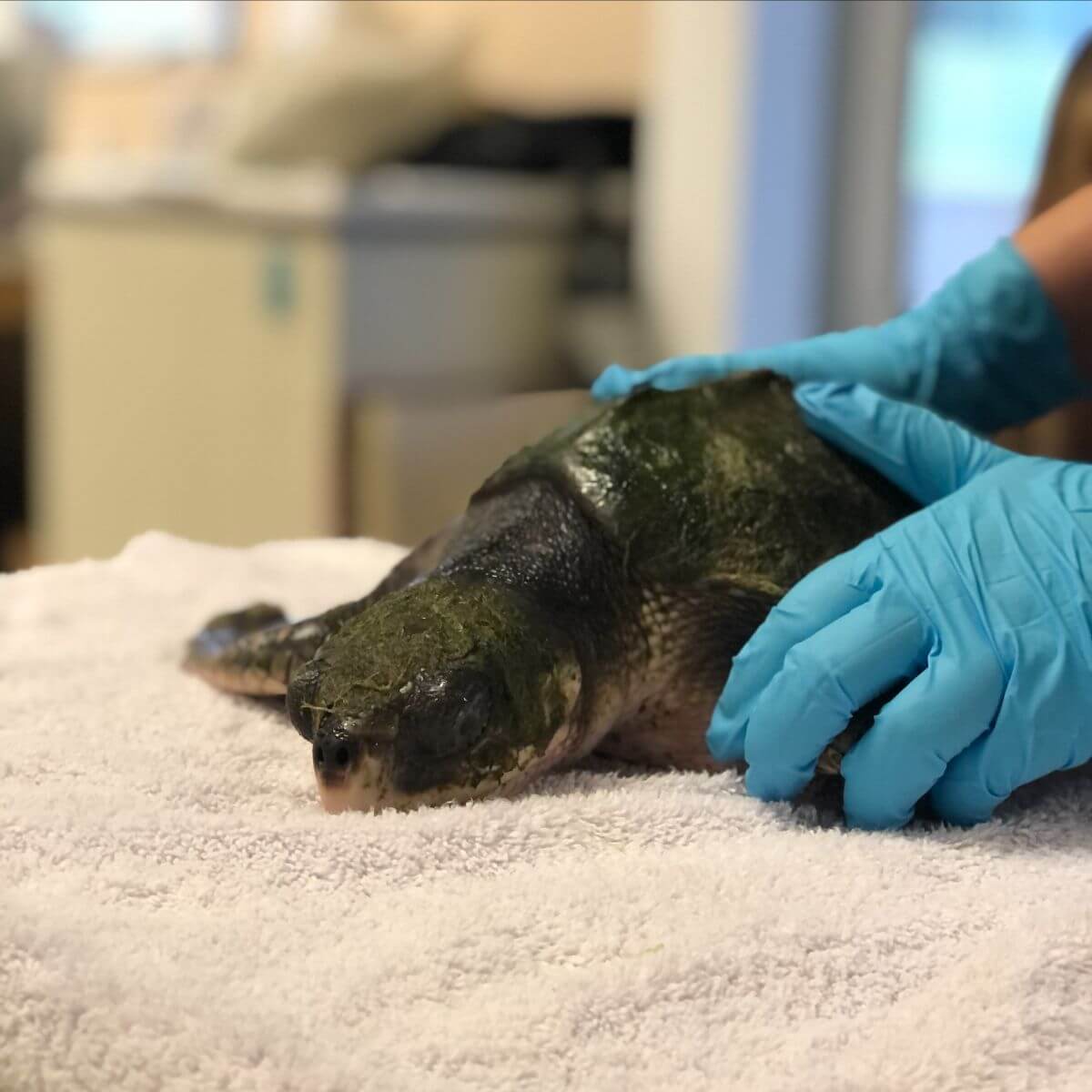
The nicknames of the turtles released today were: Art, Canaan, Douglas, Fraser, Noble, Linus, Peppermint Patty, Schroeder, and also Charlie Brown. Read more about each patient, and the others remaining in Mote’s care, at mote.org/hospital. The third group of cold stun turtles that arrived at Mote on Dec. 22 is still in critical condition.
Kemp’s ridley sea turtles are endangered according to the U.S. Fish and Wildlife Service and Critically Endangered by the International Union for Conservation of Nature and Natural Resources. Kemp’s ridley sea turtles are generally considered the most endangered sea turtle species. Threats to their population include rising water temperatures, degradation of habitat and nesting areas, and entanglement in marine debris.
Activities conducted under FWC Marine Turtle Permit MTP-20-126.
Want to learn more about Florida Sea Turtles? Check out: Sea Turtle Season Returns to Florida
About Mote Marine Laboratory & Aquarium
Mote Marine Laboratory & Aquarium, based in Sarasota, Florida, has conducted marine research since its founding as a small, one-room laboratory in 1955. Since then, Mote has grown to encompass more than 20 research and conservation programs that span the spectrum of marine science.
Sustainable aquaculture systems designed to alleviate growing pressures on wild fish populations; red tide research that works to inform the public and also mitigate the adverse effects of red tide with innovative technologies; marine animal science, conservation, and rehabilitation programs dedicated to the protection of animals such as sea turtles, manatees and dolphins; and much more.
Mote Aquarium, accredited by the Association of Zoos & Aquariums, is open 365 days per year. Learn more at mote.org or also connect with @motemarinelab on Facebook, Twitter, Instagram, and YouTube.
